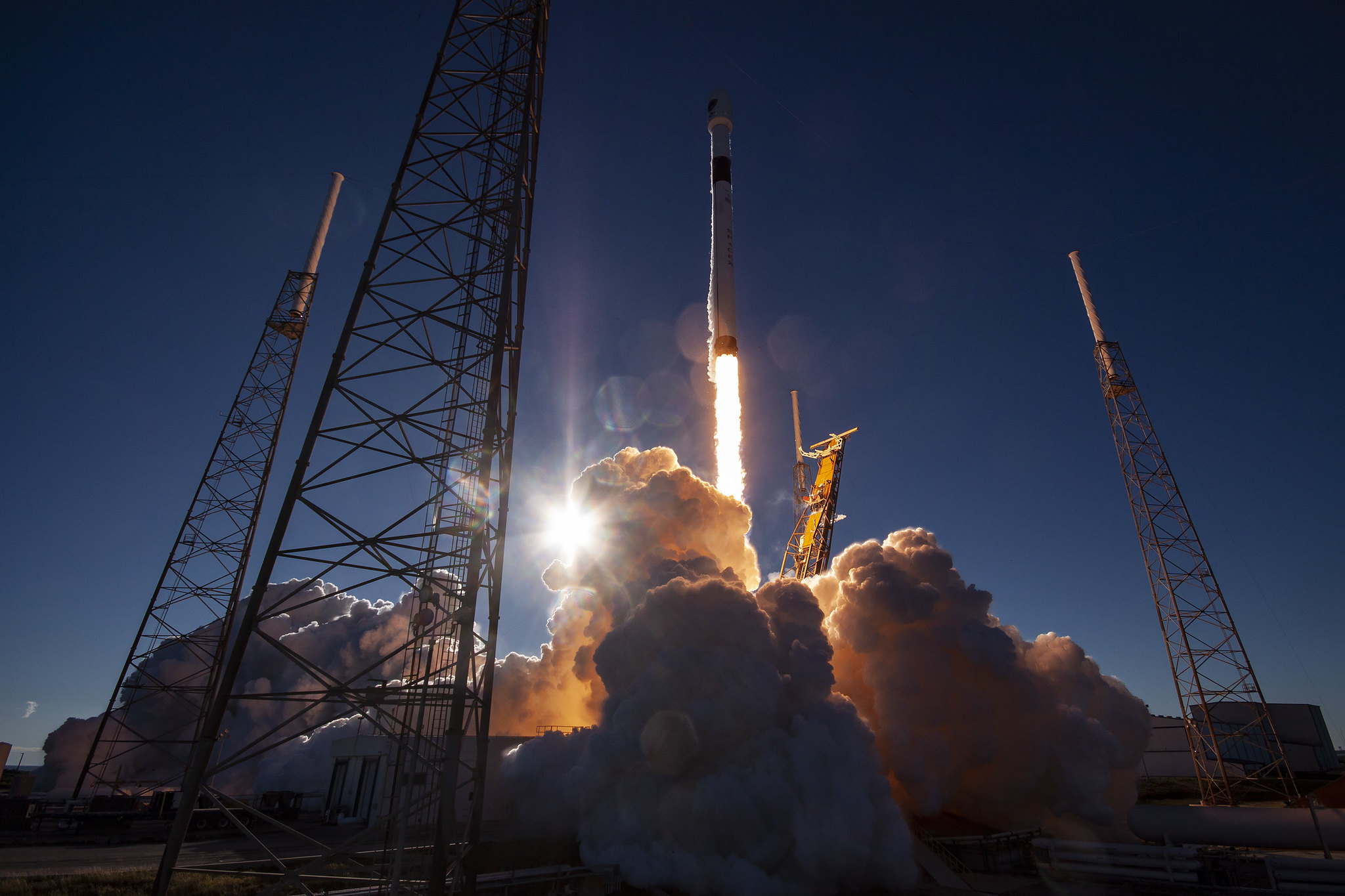Products You May Like
SpaceX on June 30 is scheduled to make its first attempt to recover the Falcon 9 booster after launching a military satellite.
WASHINGTON — SpaceX’s Falcon 9 to date has performed 86 launches, in 47 of which the rocket’s first stage landed back on earth.
While rocket landings have become the norm for SpaceX launches, none has been done yet in a national security mission.
SpaceX is about to make its first attempt to recover the booster after launching a military satellite. The company on June 30 is scheduled to launch a Global Positioning System satellite from Cape Canaveral, Florida.
This will be SpaceX’s second GPS launch. The first was in December 2018 but that mission used an expendable rocket with no legs or grid fins because the Air Force determined the vehicle could not perform the required mission trajectory and also bring the first stage back.
The second GPS launch was originally contracted to use an expendable rocket as well, but over the past year launch managers at the U.S. Space Force’s Space and Missile Systems Center negotiated a deal with SpaceX to allow the company to recover the booster.
SMC agreed to revise some mission requirements so SpaceX could fly back the booster and in exchange the company took off “several million dollars” off the price of the launch, said Walter Lauderdale, chief of the Falcon’s systems operations operation division at SMC’s Launch Enterprise. The original contract awarded to SpaceX in 2017 was for $96.5 million.
Speaking on June 26 during a call with reporters, Lauderdale said it took months of reviews and examinations of Falcon 9 mission data before SMC decided it could make tradeoffs to allow the booster recovery and still get the GPS satellite to the intended location in medium Earth orbit.
Extensive evaluations and some vehicle modifications made by SpaceX “reduced uncertainty in many areas,” said Lauderdale.
Since the December 2018 launch, SMC has gained more confidence that a Falcon 9 can meet the GPS mission needs and bring back the first stage too, said Lauderdale. “For this launch campaign flow we completed 362 verification tasks and evaluated over 230 risks.”
“SpaceX used the experience of our first launch campaign together to improve their processes,” he said. “This led to a 40 percent reduction in the number of questions we presented to them” compared to the first GPS mission.
“We evaluated the information from all SpaceX flights to ensure no cause for concerns for this mission,” Lauderdale said.
But he cautioned that the decision to allow SpaceX to recover the booster on this mission does not mean every national security mission will be suitable for reusable rockets.
SpaceX is providing a new booster for this launch. There are currently no plans to use a previously flown booster in any future GPS launches. SpaceX is under contract to fly three more GPS missions over the next two years.
“I can’t commit to when we’ll be ready” to let SpaceX launch a national security satellite using a previously flown booster, said Lauderdale. “Part of that journey is becoming familiar with how SpaceX is doing their work.”
SMC in May awarded SpaceX a $8.9 million “fleet surveillance” contract that allows government engineers to monitor how SpaceX recovers and refurbishes used boosters.
In the coming weeks DoD will select two launch providers for the National Security Space Launch Phase 2 Launch Service Procurement. Two of the bidders — SpaceX and Blue Origin — will be offering reusable launch systems.
“In Phase 2 we allow providers to bid previously flown systems,” said Lauderdale. “We’re open to whatever industry wants to make available to us.”
